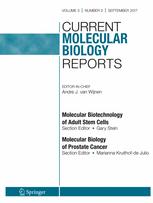Ver ítem
- xmlui.general.dspace_homeCentros e Institutos de InvestigaciónCICVyA. Centro de Investigación en Ciencias Veterinarias y AgronómicasInstituto de PatobiologíaArtículos científicosxmlui.ArtifactBrowser.ItemViewer.trail
- Inicio
- Centros e Institutos de Investigación
- CICVyA. Centro de Investigación en Ciencias Veterinarias y Agronómicas
- Instituto de Patobiología
- Artículos científicos
- Ver ítem
Plant-based vaccine for livestock : key points to unleash platform translation in developing countries
Resumen
Ten years ago the first plant-based vaccine was licensed (DowAgrosciences). It was only 20 years after the first report of a recombinant protein obtained through plant transformation technology. Back then, this vaccine was perceived as the first of an unlimited list of innovative products of
a flourishing platform. Unexpectedly, since then, no other veterinary product based on plant molecular pharming (PMP) has reached the market. This review will
[ver mas...]
Ten years ago the first plant-based vaccine was licensed (DowAgrosciences). It was only 20 years after the first report of a recombinant protein obtained through plant transformation technology. Back then, this vaccine was perceived as the first of an unlimited list of innovative products of
a flourishing platform. Unexpectedly, since then, no other veterinary product based on plant molecular pharming (PMP) has reached the market. This review will reflect a transdisciplinary view of the status and challenges that the molecular farming platform faces to become a strategic solution for the agroindustrial sector of developing countries.
Recent findings Plant-based veterinary vaccines (PBVV) have the potential to give answers to several challenges that animal health presents today. The urgent need to improve livestock productivity, especially in low and middle-income countries (LMIC), and the current concern about the emergence
of antimicrobial resistance associated with animal production, demands new products such as inexpensive vaccines and therapeutics. Based on the translational research scheme, certain barriers that could have limited the development into products of many results obtained in the last 15 years were
identified.
Summary Unquestionably, the development of innovation in LMIC is a key element in the feasibility of the platform. The emergence of PPP between multiple stakeholders as a strategy to overcome the existing disconnection between academia and industry, could enable the conversion of leading vaccine candidates from the stage of proof of concept into prototypes for industry, and thereby foster ‘productization’ in the field of veterinary vaccines.
[Cerrar]

Fuente
Current molecular biology reports 2 (4) : 171–179. (dec. 2016)
Fecha
2016-12
ISSN
2198-6428
Formato
pdf
Tipo de documento
article
Palabras Claves
Derechos de acceso
Abierto
 Excepto donde se diga explicitamente, este item se publica bajo la siguiente descripción: Creative Commons Attribution-NonCommercial-ShareAlike 2.5 Unported (CC BY-NC-SA 2.5)
Excepto donde se diga explicitamente, este item se publica bajo la siguiente descripción: Creative Commons Attribution-NonCommercial-ShareAlike 2.5 Unported (CC BY-NC-SA 2.5)


